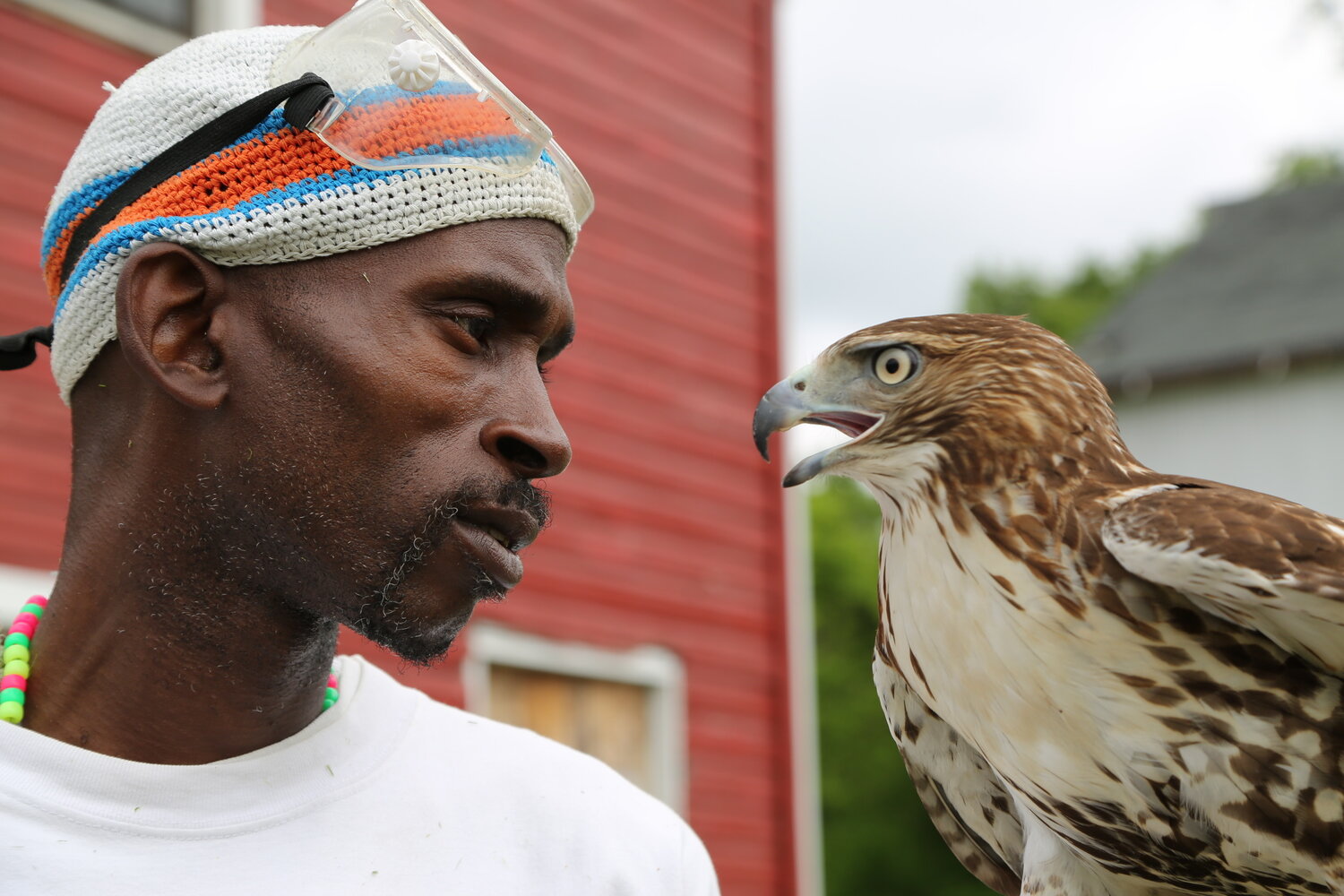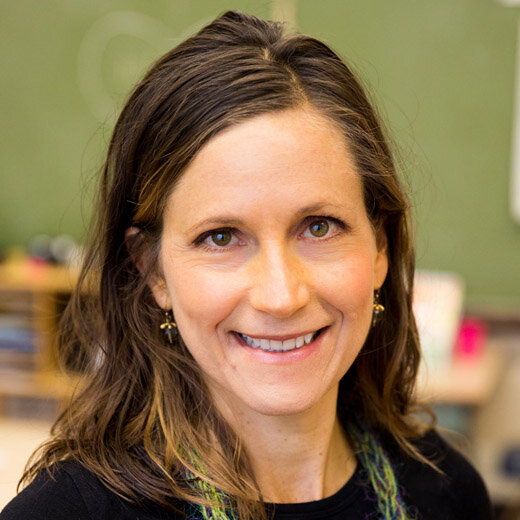Rodney Stotts is featured in “The Falconer,” one of 137 films reviewed as possible selections for One Earth Film Fest 2020. Photo courtesy of Film Director Annie Kaempfer.
By Susan Messer
Picture this. A former drug dealer and inmate living in southeast Washington, D.C., where crime is high, becomes a trained falconer. Picture the heavy leather glove, the majestic bird perched on his wrist, his eyes fixed on its eyes. Imagine he uses the connection he feels with these animals to connect with neighborhood children.
This is the film “The Falconer,” one of 137 films evaluated by 130 judges to prepare for the One Earth Film Festival, taking place March 6 to 15, 2020, at venues throughout the Chicago region.
Film reviewer ShaRhonda Knott Dawson
“I always thought of environmentalism as ‘white work,’” says ShaRhonda Knott Dawson, writer and activist, “but in ‘The Falconer,’ I saw a guy who found healing and purpose in nature. This was totally different from the kind of films I’m used to watching or what I expected.”
ShaRhonda is a judge for the One Earth Film Festival (OEFF), and she’s describing one of the 10+ films she viewed in that capacity. “I had a stereotype of who an environmentalist is and who makes documentaries, but this film, and others that I saw, defied those stereotypes. Through these films, I saw for the first time the intersection of race, class, color, nature and environmental issues.”
Film reviewer Monica Fox
Excellent. So now picture this. An enormous e-waste dump in Ghana, where once there was a pristine wetland. “But it’s not a story about garbage,” says Monica Fox, another OEFF judge, and a filmmaker herself. “It’s a film about the people who live near this dump, who are eking out a living from it, and how toxic it is to them. It’s a story told through human experience.”
Picture it. The fires, the toxic smoke, the children picking through the mountains of discarded electronics. “It’s an important film,” Fox says, “but it’s a depressing one, and we don’t want to overwhelm viewers with negative things.” A film like this, she points out, has to be shown to the right audience, in an appropriate venue, accompanied by strategies for taking action—for example, pressing companies to take responsibility for recycling their own products and to make products with longer useful lives.
Now one more picture. At least until March 2020, when you’ll be able to see these and other similarly compelling films for yourself at the One Earth Film Fest.
Film reviewer Wendy Negron
Picture a group of teens in British Columbia. “They’re terrified to speak in front of a group,” says Wendy Negron, early childhood educator and OEFF judge. “They spend most of their time playing video games. They’re full of anxiety. They’re all deemed as having disorders.”
And then they’re recruited for an ecological restoration project, to monitor salmon habitats, collect samples, calculate the speed of the water, record data, draw conclusions about the condition of the water and the salmon. “In the course of the film, they blossomed,” Wendy says. “They loved the walking sticks, the nets, the waders. They loved using tools to achieve something. They loved putting to use information they’d learned in school. ‘It’s so good to feel I was doing something right,’ said one young person.”
Picture it. Each of these three volunteer judges, and many others, in their homes, viewing films and recording their impressions on a report card that asks, among other questions, the appropriate age group for each film; the topics that are addressed (e.g., sustainable building, climate change, agriculture, energy, waste/recycling, wildlife); and most important, perhaps, whether the film is potentially life-transforming.
Some basic data thus far:
Reviewer/judges: 130
Films evaluated: 137
Report cards submitted: 518
Reviewer hours expended: 553.2
Average hours/reviewer: 4.3
But—rewind—how did those 137 films make their way to the judges?
AmeriCorps Apprentice and Festival Coordinator Tierra Steen
Meet Tierra Steen, AmeriCorps Apprentice and Festival Coordinator, and Ana Garcia-Doyle, Festival Director and founding member, who researched and compiled 200+ potential entries, reached out to the filmmakers to assess interest, acquired links for viewing, sorted films by topics, and assigned films to reviewers based on their interests and the platforms available to them for viewing.
“Our goal was to have a minimum of three or four reviewers for each film,” says Tierra, “as we want diverse points of view on each film.”
And once the judges have judged, and the films are selected, the OEFF team sets out to pair each film with an appropriate audience. “The organization at each venue decides what will meet the needs of their community,” says Ana, “as they’re using the festival films to bolster the strong work they’re already doing or to kick off new eco-initiatives, and launch a movement.”
One Earth Film Festival Director Ana Garcia-Doyle
The venues are scattered across Chicagoland—at churches, universities, schools, community centers, brewpubs, theatres, libraries, museums, forest preserves, the Shedd Aquarium, the Peggy Notebaert Nature Museum, and more.
“Then we go into scheduling and programming mode,” Ana explains. “For programming, we consider what each film needs to meet its full potential, how we can inspire the audience to connect it with their lives,” which is perhaps the most important challenge of all. “For each film, we have a trained facilitator initiate a discussion designed to bring people to action. We might have a panel of experts, a Q&A with the filmmaker, or small-group discussions. We might bring in community groups that are doing work related to the film’s topic. We want to present a very clear message about actions that audience members can take before they even leave the room—from the simplest step, such as signing up on an email list, to agreeing to help install a block garden or adopt a beach for cleanup.”
Picture all that: the filmmakers, their stories. Picture the OEFF team--researching, sorting, assigning. Picture the judges—feeling, evaluating. Picture the scorecards, the spreadsheets, the sponsors, the venues, the schedules. Picture facilitators and audiences transformed and moved to action for a better tomorrow.
Final OEFF film selections will be announced in January.






